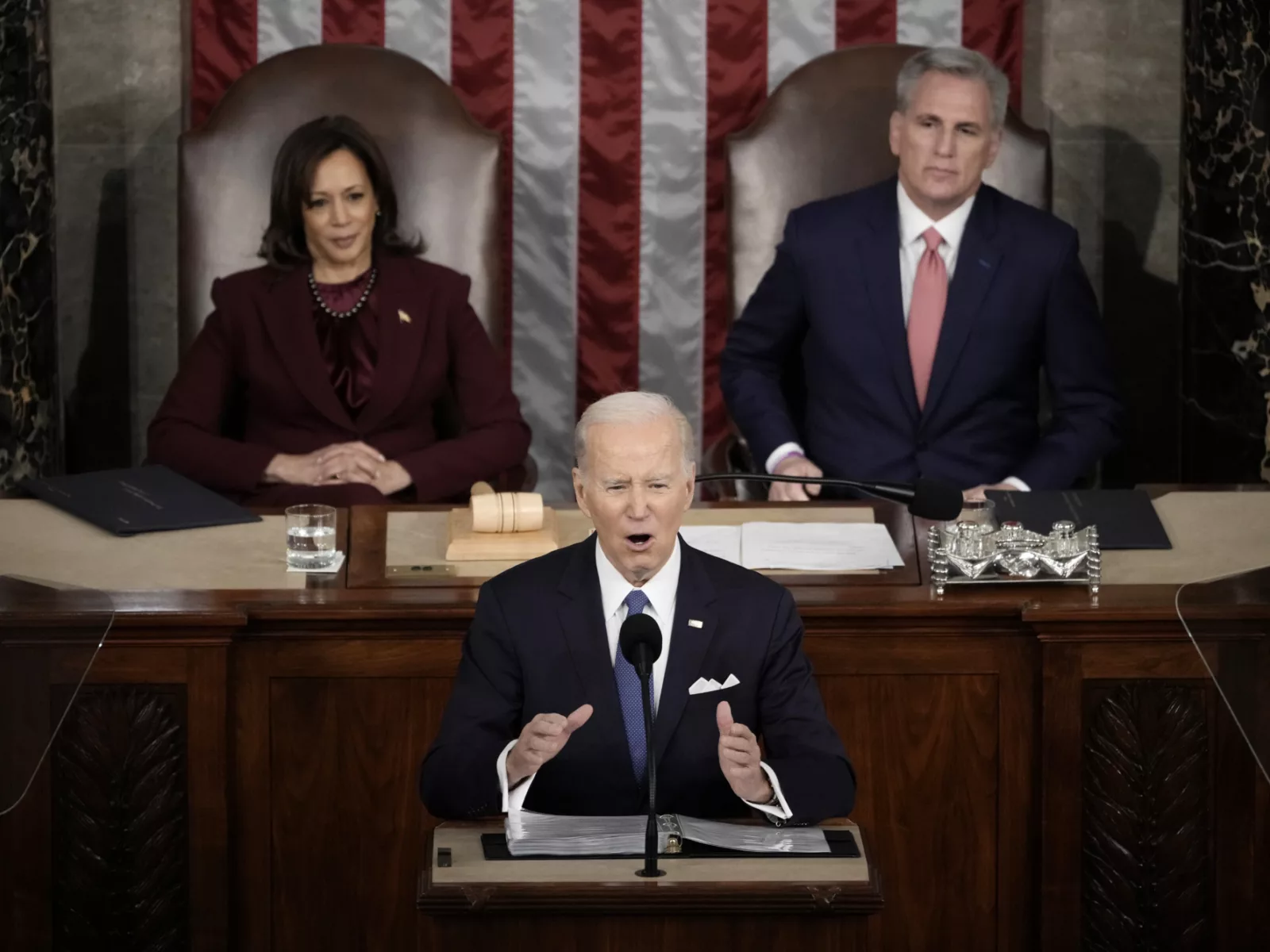Health care costs in the U.S. continue to rise, straining government budgets and burdening individual consumers and employers. At the same time, increasingly unaffordable health care also means a decline in access. Around 40% of adults say they have delayed or gone without medical care in the last year due to cost, according to a 2022 survey, and many are forced to make hard trade-offs when deciding whether to access medical care or pay for other life essentials. Health care debt has also risen sharply, affecting more than 100 million Americans.
amount of adults who have delayed or gone without medical care in the last year due to cost
Recently, there has been policymaker attention on one driver of rising health care costs in both the Medicare program and for the privately insured – differences in payments for the same services provided at different sites of care. For example, Medicare pays between 106 percent and 217 percent more for the same service delivered in a hospital outpatient department than in a physician’s office, according to reports from the Medicare Payment Advisory Commission (MedPAC), which increases costs for taxpayers and beneficiaries.
For the privately insured, hospitals similarly charge higher prices than independent physician’s offices or other outpatient facilities for the same services. In one case, an Ohio patient was billed over 10 times more for routine injections from their typical physician after a hospital system acquired the physician’s office and classified the appointment as an “operating room service.” Hospitals also tack on “facility fees” for routine services frequently provided in physician offices.
This ability to charge higher prices for hospital-based care in both the Medicare program and commercial market creates incentives for hospitals to buy up physician offices – contributing to increased hospital consolidation that stifles competition. It also shifts care from lower-cost physician offices to higher-cost hospital outpatient departments, even for less-complex services like office visits or MRIs. This all leads to increased health care spending for employers and taxpayers and higher prices and out-of-pocket costs for patients.
Now, experts and policymakers are seeking solutions to address these site-of-service payment differentials.
There has been a tremendous amount of consolidation in the provider industry, that’s a problem.Mark E. Miller executive vice president of health care at Arnold Ventures
“There has been a tremendous amount of consolidation in the provider industry,” says Mark E. Miller, executive vice president of health care at Arnold Ventures. “That’s a problem. On the commercial side, it means that businesses and households have to pay more, both in premiums and out of pocket. On the Medicare side, it increases taxpayer and beneficiary costs without increasing access or quality.”
A number of policy experts and stakeholders are now calling for legislation to expand “site-neutral payments” in the Medicare program, a measure that would create greater parity in health care pricing regardless of the setting in which services are provided. The change would lower Medicare spending, reducing health care costs for beneficiaries and taxpayers.
In Washington, AV Grantees Speak Up
Lawmakers in Congress are taking this issue seriously. Proposed policy solutions include expanding site-neutral payments in the Medicare program and addressing dishonest billing in the commercial market by requiring physician practices to bill as an office instead of an outpatient department. This change will protect patients from receiving separate bills for hospital facility fees.
Last week, the House Energy and Commerce Health subcommittee held a legislative hearing to examine policies on health care affordability, including three bills aimed at expanding site-neutral payments in Medicare and dishonest billing.
“Moving toward site-neutral payments for services that can be safely delivered in a physician’s office offers an opportunity to substantially reduce costs for taxpayers and beneficiaries while removing one of the most glaring incentives for consolidation,” said AV grantee Loren Adler, fellow and associate director of the USC-Brookings Schaeffer Initiative for Health Policy, in his testimony to the committee.
“We need to stop digging the hole deeper,” Adler said, noting the overwhelming evidence of harms caused by provider consolidation.
Brian Connell, Executive Director of Federal Affairs at the Leukemia and Lymphoma Society, an AV grantee, discussed the dire problems cancer patients face as a result of out-of-control health care costs and consolidation. He noted that in 2023, 180,000 Americans can be expected to receive a diagnosis of blood cancer, and a total of 2 million will learn that they have cancer of any kind.
“When a hospital purchases a physician practice, the shift increases a patient’s outpatient costs without corresponding improvement to the quality of their care,” Connell told the subcommittee. “Cancer patients should not pay more simply because the nameplate on the clinic door says ‘hospital’ rather than ‘physician office.’”
Bipartisan Agreement on Site-Neutral Payments and Unfair Billing
The issue of site-neutral payments is a bipartisan one. Similar policies were proposed in the budgets of both President Obama and President Trump, and they have generated broad bipartisan support from a range of think tanks, policy experts, and voters alike. Recent polling shows that 85% of voters from both sides of the aisle are supportive of limiting outpatient fees to the same price charged by doctors in the community.
Americans for Prosperity (AFP), a conservative policy advocacy organization, recently led a letter calling on Congress to address site-neutral payments and dishonest billing, alongside an ideologically diverse range of think tanks, policy experts, and advocates, including Arnold Ventures.
Site-neutral payment reform is a key solution to the federal policies that are driving and incentivizing hospital consolidation.Charlie Katebi Senior health policy analyst at Americans for Prosperity
“Site-neutral payment reform is a key solution to the federal policies that are driving and incentivizing hospital consolidation,” said Charlie Katebi, senior health policy analyst at AFP. “The hearing was very encouraging because you saw everybody — from the witnesses who came to testify to the lawmakers on the committee — not only understanding what the problem is, but agreeing on this solution.”
Third Way, a think tank that champions center-left policies, signed onto the bipartisan letter and Darbin Wofford, Third Way’s health policy advisor, said he is encouraged by the attention on this issue.
“Third Way is committed to lowering health care costs, and one of the prime areas where savings can be achieved for patients is through site neutrality,” said Wofford. “There’s a real lack of transparency in hospital billing, and patients are receiving outrageous facility fees that can amount to thousands of dollars in out-of-pocket costs. That’s a tremendous market failure, and we believe it can be fixed.”
In his opening remarks to the Energy and Commerce committee, Adler also reinforced that site-neutral policies have broad support from experts and stakeholders, with the exception of hospitals.
“Lobbyists are pretty much the only opposition,” he said.
At the same time, a broad group of stakeholders is calling for Congress to take on policies that lower health care prices for consumers, address market failures, and create greater price transparency. In a recent letter to congressional leaders, groups including Families USA, American Benefits Council, the Blue Cross Blue Shield Association, the American Academy of Family Physicians, and Arnold Ventures outlined these goals and offered partnership on future legislative efforts to “make high-quality health care more affordable.”
Voters Want Action
Recent polling shows that an overwhelming 94% of voters across the political spectrum want Congress to take action to address high health care costs.
Lowering health care costs must be a priority for lawmakers, and experts see it as a promising development that Congress is focused on solutions such as site-neutral pricing — and taking steps along the path toward making laws that provide more affordable health care for all Americans.
“Patients need bold action to make sure that the system is sustainable for patients today and into the future,” Connell said during the subcommittee hearing. “We’re encouraged that many of the proposals the committee is considering today will promote health-care competition and meaningful transparency.”


















